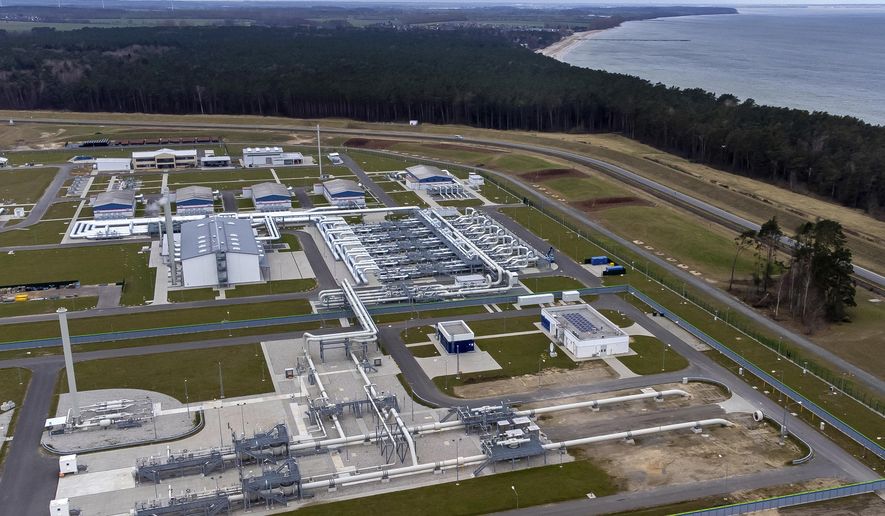
EXACTLY 100 years ago today, representatives from the socialist republics of Russia, Ukraine, Byelorussia (now Belarus) and Transcaucasia (Azerbaijan, Armenia and Georgia) signed a treaty that set up the Union of Soviet Socialist Republics (USSR). The entity, expanded from the 1920s to the 1940s, lasted almost exactly 69 years.
Today’s centenary — the treaty was formally ratified two days later by the Congress of Soviets of the USSR — is unlikely to be widely commemorated, notwithstanding the Soviet Union’s immense role in the shape and trajectory of the 20th century.
The Bolshevik Revolution was five years old by 1922, and had warded off the immediate military threat, including foreign intervention from the usual Western suspects, thanks in large part to Leon Trotsky’s ability to reorganise a ragtag fighting force into the brutally efficient Red Army.
The reprieve from conflict had made it possible to exchange ‘war communism’ for a ‘new economic policy’ that permitted small-scale private enterprise and to some extent conciliated the peasants distraught over the practice whereby a large proportion of their harvest was requisitioned for the cities, with poor recompense.
A revolutionary upheaval entered phase two a century ago.
By 1922, though, the architect of the October Revolution was himself dismayed by its direction, and coming up with ideas to redress its decline. But Vladimir Ilyich Lenin suffered two strokes that year, and his own descent eventually proved irremediable. He recovered partially from the first one and returned to work, but a second stroke led to exile from the helm of affairs in Moscow for medical reasons.
But his mental acuity remained largely intact until a third stroke in 1923 stripped him of the ability to speak for the remaining eight months of his life. In December 1922 and into January, however, he was able to dictate a series of notes that subsequently became known as Lenin’s will or testament. They covered a range of topics, from reorganisation of the Communist Party to restructuring of the economy, as well as the conditions under which former elements of the tsarist empire could or should be incorporated into the USSR.
He didn’t call it ‘perestroika’, but that’s what his proposals were tantamount to. Most of them went practically unheeded, and some were even suppressed from circulation for three to four decades. Among them was Lenin’s acknowledgment on Dec 30, 1922 — the very day that the union treaty was ratified — that his insistence on the autonomy of constituent republics of the USSR and their right to secede would be worthless if it comes “from the same Russian apparatus which … we took over from tsarism and slightly anointed with Soviet oil”.
He goes on to describe that apparatus, “still quite alien to us”, as “a bourgeois and tsarist hotchpotch”, and predicts that a “mere scrap of paper” will prove “unable to defend the non-Russians from the onslaught of that really Russian man, the Great Russian chauvinist, in substance a rascal and a tyrant, as the typical Russian bureaucrat is”.
That description seems to fit Vladimir Putin. It may not have been pointedly directed at Josef Stalin (who wasn’t a Russian, although Lenin was well aware of how ‘Russified’ individuals from ethnic minorities doubled down on chauvinism, just as religious converts can tend towards fanaticism). But by then, Lenin had caught glimpses of the degree to which Stalin was accruing power in his capacity as party general secretary, and was keen to remove him from that position.
He, and nobody else, had any inkling of what lay in store in the 1930s — massive industrialisation, forced collectivisation and also mass extermination, which included most of Lenin’s (and at some point Stalin’s) closest comrades. The character defects Lenin had identified in Stalin turned out to be far more destructive than he could have imagined.
Fuelled by the 1917 revolution, the Soviet example proved to be transformative through much of the 20th century, not least for liberation movements in various parts of the world. The theory behind it might have been far more attractive than most of its practices, but the aftermath of its collapse in 1991 — after a short-lived window of possible redemption under Mikhail Gorbachev was smashed, as Marx and Engels might have predicted, by the dominant ideology of the day — showed that for the majority of Soviet citizens, the aftermath was worse in all too many ways.
Would a collective post-Lenin leadership have made much of a difference? Almost certainly, although it might have led to other failures. Rather than denigrate the audacious and globally transformative Soviet experiment as a preordained travesty and inevitable disaster, it is worth examining its many failings as lessons that will feed into 21st-century efforts to transcend neoliberalism.
Would a less destructive USSR have served as a superior exemplar for the rest of the world? Possibly, even probably. But that’s the stuff dreams are made of.
mahir.dawn@gmail.com
Published in Dawn, December 28th, 2022








